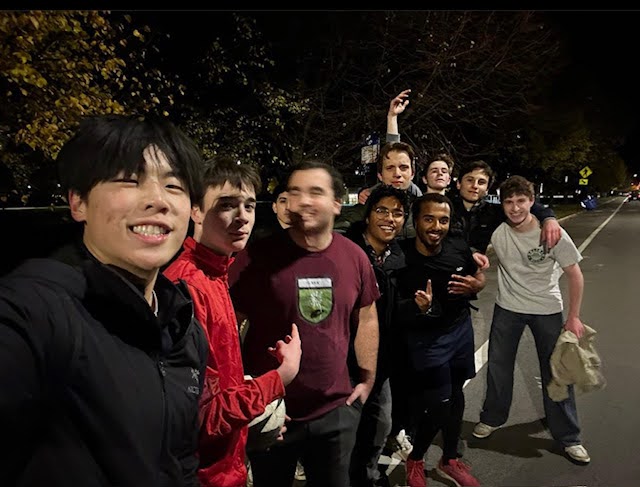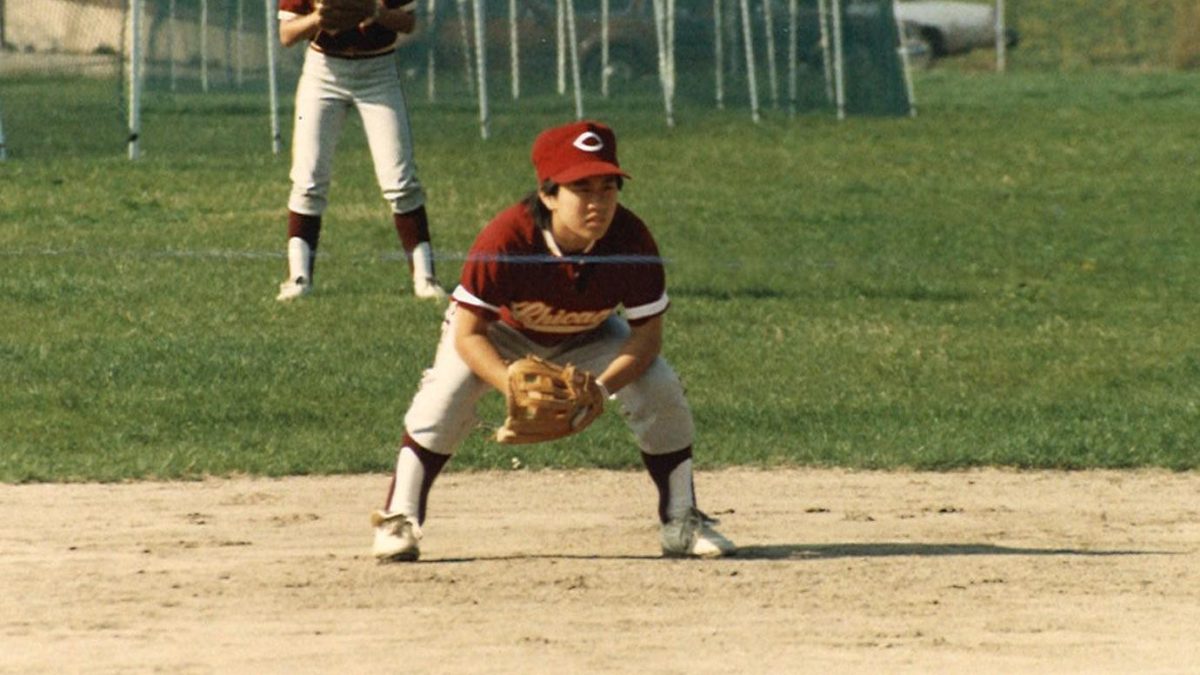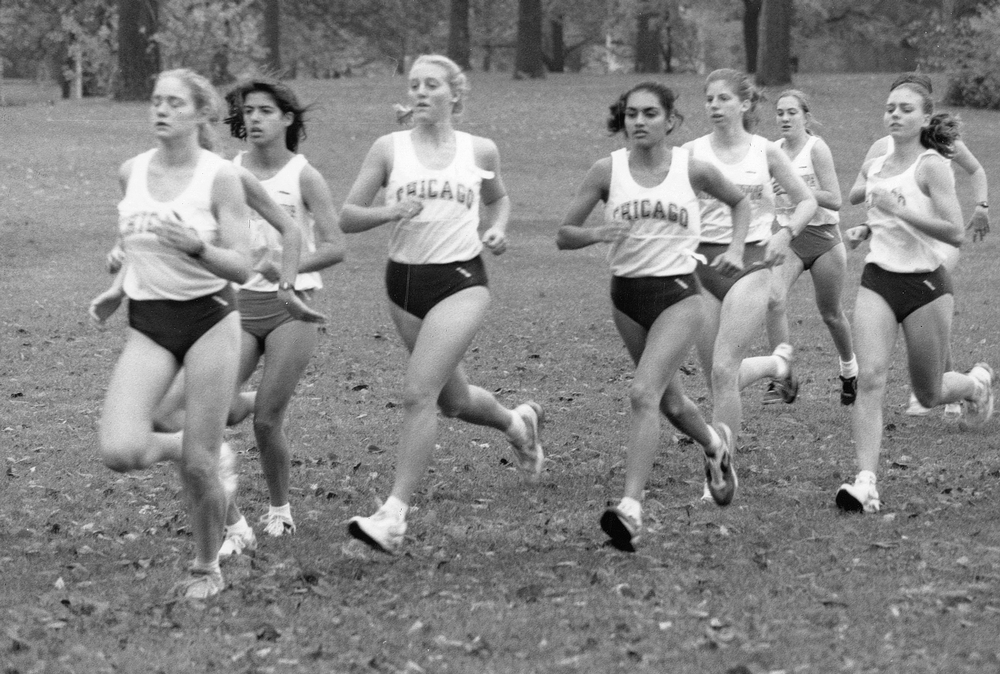In less than a week, Ward Bortz will be serving up aces at the Division III national singles tournament. If he can triumph in his first round match, he’ll bring home an All-American certificate for the second year in a row. The pressure will be intense, but this fourth-year has what it takes to compete at a high level.
Win or lose, it’s been one heck of a career for the senior from Brookfield, Wisconsin. His journey through the world of collegiate tennis followed an atypical path, taking him to Madison for a two year stint at the University of Wisconsin before he settled here in Hyde Park. Bortz recorded a 43–18 career mark at first singles and went 36-–20 in doubles play for the Maroons, and he played a key role in the emergence of the Chicago men’s tennis program as a major force on the national landscape. But what makes his achievements at Chicago even more impressive is his limited time to accomplish them.
Inexperience was never an issue for Bortz when he got to campus. He began playing tennis at the age of five thanks to a push from his father, former Missouri player Reb Bortz. He made the round of 32 at the national clay-court tournament at 14 and was a standout at Marquette High School, where he won state individual titles his junior and senior years and finished his career as an All-American.
“I feel like with people who end up playing sports in college, it’s decided before you’re 13. You’re either good or you’re not,” Bortz said. “I was best at tennis.”
Bortz was courted by Michigan and Columbia, but for both athletic and academic reasons he remained in-state with the Badgers. He was something less than a star in Madison his first year, going 8–10 while playing primarily at fifth singles. As his sophomore year began, Bortz began to feel discontented at the amount of attention his tennis career was taking from his life as a student. While he went 13–16 playing at fourth and fifth singles that year, he was granted his release to speak with other coaches about a possible transfer.
“When I started playing my second year, I found myself thinking, ‘I’m not as into this as I used to be,’” Bortz said. “I was more interested in what I was doing at school than what I was doing in tennis, and at that level, tennis really has to be the focus of your life. I wanted a better balance.”
His search for a complete student-athlete experience came to upset the balance of power between two archrivals, Chicago and the Wash U Bears. Both schools found themselves the primary candidates for Bortz’s services during the spring of 2004.
From a tennis standpoint, it was an easy choice. The Maroons had finished with just two wins two seasons before and had finished dead last in the UAA tournament that April for the sixth year in a row. But Bortz, who was interested in pursuing an economics degree, thirsted for the opportunity to take advantage of Chicago’s “best in the world” strength in that arena and believed that the improvements seen that year under first-year head coach Marty Perry were the start of something good. The Division I transfer decided to forego teaming up with the Bears’ Ari Rosenthal and go for wearing the maroon and white instead.
“They didn’t have a good history, but I knew with Marty that they were going to have a good program quickly,” Bortz said.
It proved a fortuitous move for player and coach alike. Stepping into the top spot, Bortz roared through the competition to go 26-–10 on the year with a 5–4 mark against regionally ranked opponents. He put on a show in doubles as well, posting a 20–12 record overall while pairing up primarily with then-first-year Sasha Deriy. His efforts set the tone for his teammates, as the Maroons ended the year with a previously unfathomable 18–10 mark, highlighted by a third-place UAA finish and their first-ever berth in the NCAA team tournament.
At no point was Bortz’s presence felt more than during the league tourney, where he grabbed big victories in his squad’s first round triumph against Carnegie and over Rosenthal in the third-place match to help his team to their best league finish since 1995. There is no question that the team couldn’t have won its first-ever postseason bid without him.
While the transfer found the quality of players at first and second singles on most of the top opposing squads Division I worthy, his experience at the top level gave him a mental edge over his adversaries. Having dealt with the adversity of handling win-at-all-costs coaches and foes, Bortz was more than ready for the grind he would face at Chicago. Though he adjusted his game to fit the more patient, less aggressive style of play more prevalent in Division III, the All-American still had the right package of skills, toughness and focus to adjust to whatever came his way with a racket in hand.
“You know, kids in Division III are a lot nicer. There was one coach at the D-I level whose strategy in recruiting was to bring in foreigners with no money with tennis skills, give them a full ride, and tell them, ‘You have to do what I tell you or I’ll take away your scholarship.’ I was playing one of his kids and doing well, and the coach came over and talked to him, and he began cheating rampantly. I asked him what that was about, and he responded, ‘If I don’t do this, I have to go home,’” Bortz said. “Most of the guys at one and two here could play D-I, but having dealt with that seediness helps.”
Whatever the reason, Bortz was able to dominate to the point of capturing 14th standing in the national rankings by the end of the year and was offered a berth at Santa Cruz. He needed just one win to capture All-American status, and was able to get it against current Swarthmore third-year Jon Reiss 7–5, 6–7 (4), 6–0. Bortz was largely overwhelmed by UC–Santa Cruz’s Kevin Casey (A.B. ’05) in the second round 6–2, 6–3, but the loss couldn’t deter from what he had accomplished.
“One of my major goals was to go to the NCAAs at this level, and I was happy with the results,” Bortz said. “Yeah, the guy who beat me in the second round was better than me. Those matches, what can you do? I did the best I could, and lost the match to a better player.”
There was no resting on his laurels for Bortz this year. He spent most of the season ranked 21st in Division III and upped his record against regionally ranked opponents to 6–3. His overall mark unfortunately slipped a bit to 17–8, as his struggles to put away weaker challengers mirrored that of his team in a 12–10 year. While he grabbed critical victories at UAAs once more to help the team to a 2–1 mark and a fifth-place finish and went 16–8 in doubles play, it was not enough to get the Maroons back into the NCAAs.
“We definitely had some mental blips. There were some matches talent-wise that we should have won that we didn’t win, and for myself personally, there were some matches where I thought I was better than the kid and I lost, which really irks me,” Bortz said.
Having kept his spot in the national top 25 throughout the year and giving his all against the Midwest’s best, Bortz earned his own shot at postseason glory. He will head to Fredericksburg, Virginia, for the singles tourney beginning May 17, with his first round opponent still to be announced at this point. Whoever it is will have quite a battle ahead of him as Bortz aims to end his decorated career in style.
The outcome of next week’s match aside, no one will be forgetting what this Big Ten refugee did for Chicago tennis any time soon.







